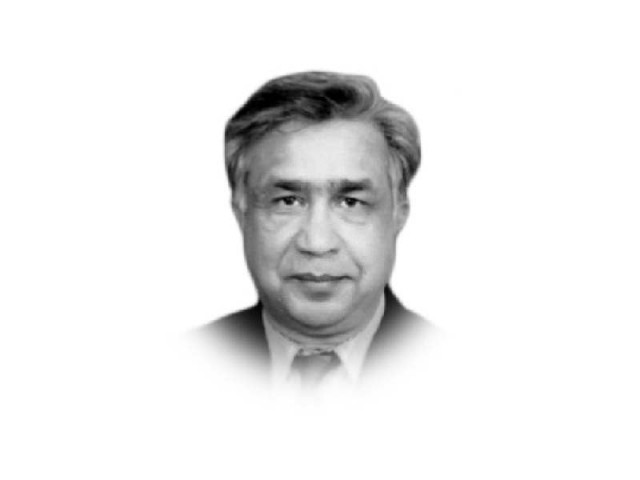Living virtual
We have produced more of the Prufrocks and converted the world to Wasteland, as said by TS Eliot

Baudrillard, the French philosopher of Postmodernism, termed the postmodern life as a series of simulacra and hence never real but a copy of the copy. The millennials era has proved him perfectly right, especially at a time when almost every individual of the world and specifically of Pakistan is living a maximum of fake life in virtual reality based on connectivity with Facebook, Instagram, Twitter, etc. As such, netizens are building their social media life without any socio-political improvements. Considering the pros and cons, it is essential to look into the prospects of humanity and its life on earth.
The situation came to the forefront because of Covid-19 when every country was forced to shift — first, to hybrid education mode and then to the online system of instructions and evaluation. This converted the traditional modes of teaching to virtual ones. A virtual connection was the only bridge between the teacher and the student. The technology spread its wings further and isolated the class and the teacher from one another. Though the virtual world got them connected through Wi-Fi systems, the humans were limited within their workplaces. Consequently, they suffered social and psychological repercussions of the internet technologies. Google Meet, Zoom and MS Teams assumed the responsibility of the platforms to bring the people face to face in the form of Baudrillard’s simulacra where the tools were mostly YouTube, WhatsApp and Facebook.
Facebook proved Fakebook in terms of the fakeness that the users produced and then believed it as real. Even the sanctity of the institution of marriage was thwarted because many marriage proposals and unions via Facebook turned out to be fake. Love claimed by the partners existed only in virtuality. Similarly, the crime-mongers got hold of such vastly impacting tool and found benefits in spreading propaganda-based information for the users along with the false notifications and information to spread panic and create a paranoid environment. Gradually people fell victim to the (mis)reality or a false representation of reality.
Virtual reality has isolated human beings from their playgrounds, social interaction and theatrical formations. Instead of playing in the ground, the young began to play virtual games, which allowed a type of manipulation of the game through virtual tools. This further alienated them from the physical world. Screen times have increased to the extent that everyone keeps their eyes open to social and digital media and keeps eyes shut from the much-wanted connection with the physical world. Increased screen timing has murdered the socio-cultural values, much needed for making our children useful citizens of our country. The result is a lack of responsibility, carelessness and indifference to the human life around us.
By letting our people indulge in the virtual world recklessly and by not providing any proper guidelines, we have produced more of the Prufrocks and converted the world to Wasteland, as said by TS Eliot. These Prufrocks love to understand their fellow beings through magic lanterns instead of interacting with them socially. Many young men have lost faith in working hard and making their lives worth living. They have refused to become useful and practical citizens of the state and are simply waiting to become rich overnight like Steve Jobs, Michael Jackson, Maradona or Bill Gates.
There is no denying the fact that virtual technology especially based on the internet has facilitated the rapid access to information for a common citizen and has resulted in keeping a certain level of monitoring on almost every office-bearer. It has also provided new types of professionalism and employment to a large chunk of society. But these professions are mostly services and very little based on the production of something solid. These virtual social structures have proved financially and educationally beneficial to a small fraction of people, like paid YouTube channels and academic websites. It has made the dissemination of information faster than ever. Furthermore, it has increased the speed of communication multiple times and has provided the opportunity to spend time in entertainment more easily than ever. But all this is happening in the virtual world.
In the current globalised scenario, we cannot help but adopt information and internet technology, which explains the introduction of the virtual world in our socio-political life. However, it should be done with proper management and supervision so that we benefit more from the useful aspect of modern-day reality and prevent this virtual reality from raising tensions and demands on our social structure and value system. Our education system can play a significant role in this by inculcating ethics and morality in the young minds and integrating it. Such policies and management regimes can be put into force to prevent the young minds from isolation and falling victim to the digital divide or searching panacea in the world of virtual reality. Instead, we should prepare them to face the world and become the fittest survivor in both the virtual and the physical world.
Published in The Express Tribune, December 10th, 2021.
Like Opinion & Editorial on Facebook, follow @ETOpEd on Twitter to receive all updates on all our daily pieces.












COMMENTS
Comments are moderated and generally will be posted if they are on-topic and not abusive.
For more information, please see our Comments FAQ